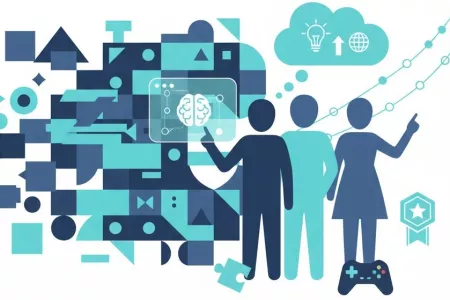Learn Like a Leader – Experience, Play, and Development Hand-in-Hand
What do you think is the fastest way for future leaders to develop? Through textbooks? PowerPoint presentations? Maybe a little, but that’s not the real secret. True leadership competencies—like decision-making, communication, emotional intelligence, or team management—are learned through real-life situations, mistakes, and feedback. Good news: developing them can be fun today!
Play is Serious Business: Gamification in Competency Development
Gamification means integrating playful elements—challenges, points, levels, and stories—into the learning process. Gamified learning programs can increase students' motivation and engagement by as much as 30–40%, leading to greater success in your development, too. Just think of Duolingo: you’re not just learning a language, you’re developing through play. Why couldn't you learn leadership this way as well?
Try the Habitica app—it helps you playfully develop your leadership habits!
Simulation = Safe Mistakes
Simulation exercises are like a "practice exam" before real life. You play a leadership role, make decisions, and manage a team—but without the risk. Young people who participate in leadership simulations perform significantly better in teamwork and conflict management.
More complex simulations are usually paid, but the opportunity often presents itself when a school or university subscribes to the service, or a major organization announces a simulation competition.
No one can develop your abilities for you, and missing out on this is a missed opportunity. Remember, even if it's free for you, it's very valuable. In the job market, either your workplace will help and pay for it, or you will have to pay serious money yourself (e.g., hundreds of thousands of forints for Harvard Business School leadership simulations or Fligby).
Experiential Learning: Learn from Experience
Leadership competencies often only truly develop when a real emotional experience is attached to them. This can be an experiential learning training (e.g., outdoor team building), resolving a conflict situation, or overcoming stage fright before a presentation. You can't just read about these things—you have to live them! Take on a leadership role, whether at school, work, or in a hobby. For instance, managing and supporting a team of 8–10 people during one section of a bike tour.
Board Games? Yes, But Smartly!
Many people are surprised to learn that you can also develop leadership skills with board games. The cooperative game "Pandemic," for example, excellenty develops strategic thinking and teamwork, while "The Mind" helps with non-verbal communication. It is also worth looking into the Leadership Board Game.
What are you doing to develop your leadership competencies?
Written by: Dr. Norbert Sipos, assistant professor

